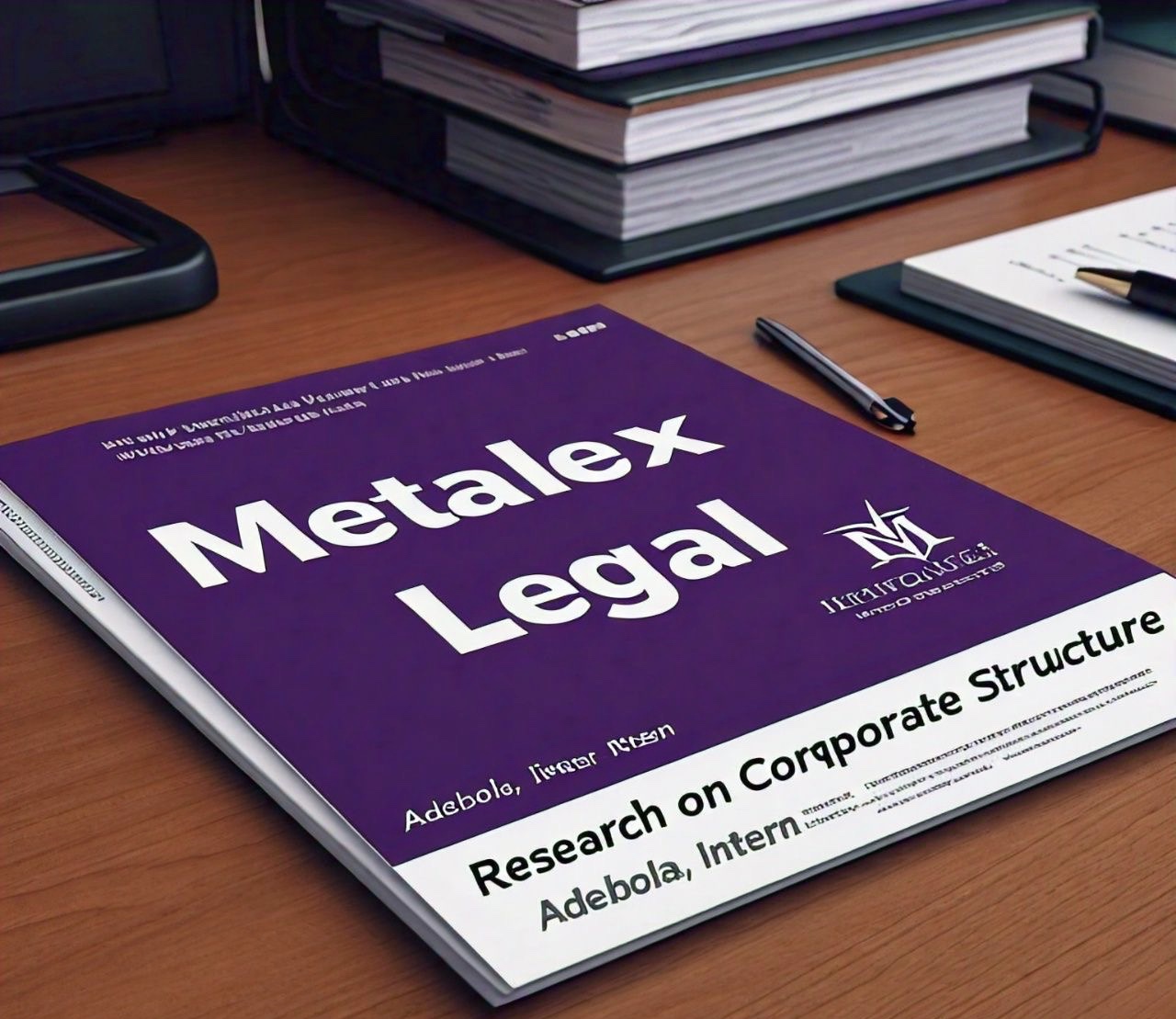
The issue of undercharging legal fees has emerged as a pressing concern within the legal profession. This menace is not limited to Nigeria alone, as lawyers in various jurisdictions worldwide grapple with the challenges it presents.
In this comprehensive article, we delve into the negative impacts of undercharging legal services by legal practitioners and an extensive examination of potential issues and lacunas in the Legal Practitioners Remuneration (For Business, Legal Service, and Representation) Order, 2023, which was recently executed by the Legal Practitioners Remuneration Committee to curb this menace of undercharging by some lawyers in Nigeria.
To start with, undercharging legal fees inadvertently leads to the undervaluation of legal expertise. Lawyers dedicate years to acquiring specialized knowledge and skills through education and training. However, when fees are set below standard rates, the value and experience brought by legal professionals are not fully acknowledged. This devaluation of legal services has broader implications for the entire legal profession.
Also, undercharging imposes financial challenges on lawyers, particularly those reliant solely on their legal practice for their livelihood. By setting fees below the necessary levels to cover overhead costs, such as office rent, utilities, legal research tools, and staff salaries, lawyers may find it challenging to sustain a profitable practice. This financial strain hampers their ability to invest in professional development and provide quality services.
Furthermore, undercharging legal fees can inadvertently create unrealistic expectations among clients. When clients pay significantly less than the standard rate, they may develop a perception that the services provided should be of equal quality. This discrepancy between expectations and resources can strain the lawyer-client relationship and potentially tarnish the reputation of both the lawyer and the profession.
While there are other negative impacts of undercharging on the practice of law and lawyers generally, it is important to point out that the execution of the Remuneration Order, 2023 in Nigeria is quite an applaudable step to cover the issue of undercharging and to set a standard for remuneration in order to protect the interest of the clients and lawyers in the delivery of legal services and business. Earlier this week, we published a resource on LinkedIn covering, every important areas of the Remuneration Order.
However, a microscopic and clear examination of the provisions of the Remuneration Order reveals in our opinion some major issues which could render the essence of the Order impracticable.
The enforceability of the Remuneration Order is a critical concern that cannot be overlooked. It is widely acknowledged that the establishment of a legal framework is distinct from its successful implementation and enforcement. Although the Order establishes a set of standards and grants the Remuneration Committee and the Legal Practitioners Disciplinary Committee of the Nigerian Bar Association the inherent authority to investigate and penalize lawyers who fail to comply, it is important to recognize that this is only one of several necessary steps needed to achieve the purpose of the Order.
The sole provision in the Order regarding enforcement and the penalization of defaulting lawyers is found in Para. 11(1), which places the responsibility on all individuals, including lawyers and non-lawyers, to report any lawyer who violates the provisions of the Order. However, in our assessment, it may be impractical to expect clients and prospective clients to report lawyers for charging fees less than the standards set in the Order. In fact, many prospective clients now actively seek out the cheapest legal services available, making it unlikely for them to report lawyers who charge below the standard rates.
Similarly, it is uncommon for lawyers to report their colleagues to the Remuneration Committee, especially when senior lawyers are the ones violating the Order. Furthermore, without a robust framework to facilitate the investigation of lawyers alleged to be in contravention, the task of holding these lawyers accountable may prove fruitless. For example, some lawyers may engage in undercharging behind closed doors, and even if they are being investigated, they can argue that they charged appropriately. This can be difficult to disprove, particularly since some lawyers in Nigeria do not maintain comprehensive financial records, and payments are often received in both electronic and cash forms.
Therefore, it is crucial to establish a more comprehensive enforcement framework and an active enforcement committee to address these challenges effectively. This would enhance the ability to take decisive action against lawyers who contravene the Order, rather than relying solely on the possibility of catching lawyers in the act.
Another issue we have identified pertains to the classification of states into State Band 1, State Band 2, and State Band 3 by the Remuneration Committee for the purpose of determining lawyer charges. While the intention behind using State Bands may have been to consider economic and social factors specific to each state when determining fees, we believe that this approach deviates from practicality and may complicate the implementation of the Order. It appears that this oversight may have been made without clear consideration of the fact that the legal profession and practice has become more remote and globalized due to technological advancements.
With the State Bands in place, lawyers in a particular State are mandated to charge fees based on the State Band assigned to their State. However, a crucial question arises when a client from a different State seeks legal consultation or advice, or other legal service from a lawyer in a different State. Should the lawyer then charge based on the minimum standard fee for the State Band of his own State, or should he charge based on the standards applicable in the client's State?
In our opinion, the inclusion of State Bands may not have been necessary, especially considering that they do not account for the remote delivery of legal services across State boundaries and the fact that lawyers in Nigeria can practice in all the States of the Federation. This discrepancy can lead to the migration of prospective clients from States with higher minimum charges to States with lower minimum charges for legal services. Consequently, lawyers practicing in States with higher fees may find themselves losing out on legal work.
In our view, it would have been sufficient to establish a uniform minimum standard for charging based on the years of post-call experience of lawyers and the Senior Advocates of Nigeria (SAN) status. This approach would have been more favorable than the current inclusion of State Bands in the Order. It is worth noting that the Order already structured the scale of charges based on the post-call experience of lawyers in Nigeria and the SAN status. The Committee could have opted to maintain this structure without introducing the State Bands.
Para. 2 of the Order states that matters not covered by its provisions should be charged by considering factors such as time, experience, knowledge, and the value of the subject of the transaction etc. Even for matters for which the Order provides a minimum amount. Para. 5 also allows lawyers to charge differently, provided it is higher than the standard set. Given that this flexibility is already in place, establishing a uniform minimum amount based on years of post-call experience would have sufficed.
Lawyers in Lagos or Abuja, for example, could choose to charge higher fees considering the higher cost of practicing in those territories, taking into account the economic factors specific to their area. It is well-known, particularly in real estate and property transactions, that States like Lagos and the Federal Capital Territory, command higher prices compared to other States in Nigeria. This information is widely recognized, and individuals seeking to purchase or lease property in those high-value States expect to pay more without complaint.
By adopting a uniform minimum standard based on post-call experience, the Order could have achieved its purpose more effectively, while still allowing lawyers to consider economic factors within their respective states. The inclusion of State Bands, in our opinion, adds unnecessary complexity to the charging structure and could have been avoided.
Overall, it is important to reevaluate the necessity and implications of the State Bands, particularly in the context of remote inter-state legal services. This would help address the potential absurdities and ensure a more equitable and efficient implementation of the Order.
Furthermore, the current Order lacks clear provisions regarding a lawyer's retainership. While the Committee may have believed that retainership falls under a lawyer's contractual relationship with their client, we perceive this as another gap that could have been addressed. Retainership serves the purpose of having a lawyer readily available to work for an individual or corporate entity. The absence of standardized provisions for retainership leaves room for exploitation and potential complications that undermine the standards the Committee seeks to establish.
Finally, in addition to the prevalent issue of undercharging, we must also address the concerning practice of young lawyers working as Associates in law firms without receiving fair compensation. Except this matter falls outside the purview of the Remuneration Committee, we strongly believe that provisions in the Order addressing this issue could have greatly enhanced the overall welfare of lawyers in Nigeria especially the young lawyers.
As we strive to rectify the problem of undercharging and promote a fair remuneration system, it is imperative that we recognize the importance of providing adequate and reasonable compensation to senior and young lawyers employed by law firms. Ensuring the well-being and equitable treatment of lawyers is not only crucial for their professional growth and development but also for the sustainability and advancement of the legal profession as a whole.
By addressing both the issue of undercharging and the inadequate compensation of young lawyers, we can create a more balanced and rewarding environment that fosters the growth, success, and overall welfare of lawyers in Nigeria. It is our collective responsibility to champion fair remuneration practices and promote a supportive ecosystem for the legal community.
In conclusion, we strongly advocate for the implementation of the Remuneration Order and remain hopeful that the identified issues will be carefully considered and addressed by the Remuneration Committee. It is our sincere belief that lawyers in Nigeria will fully adhere to the provisions of the Order in order to uphold the integrity and esteemed standards of the legal profession within the country.
It is also crucial for lawyers worldwide to recognize that they deserve the highest standard of remuneration in delivering quality legal services and resolving legal issues and regardless of jurisdiction, maintaining a commitment to excellence ensures the provision of optimal legal solutions to clients.
